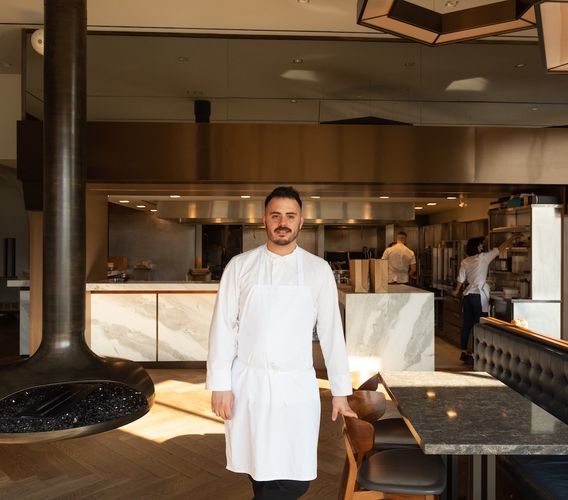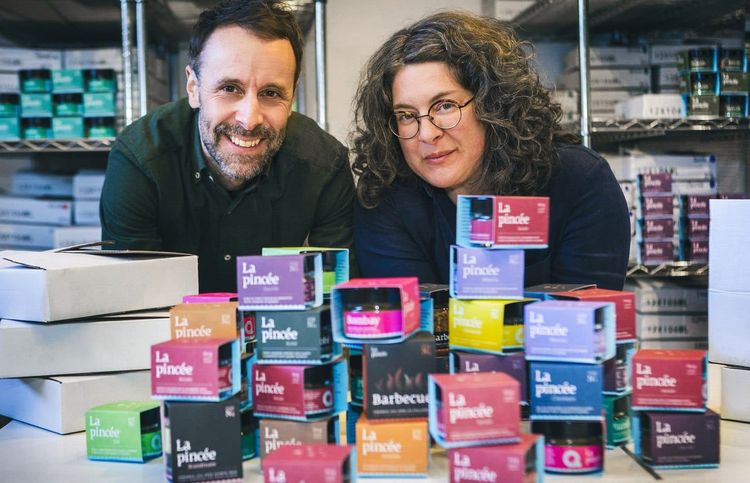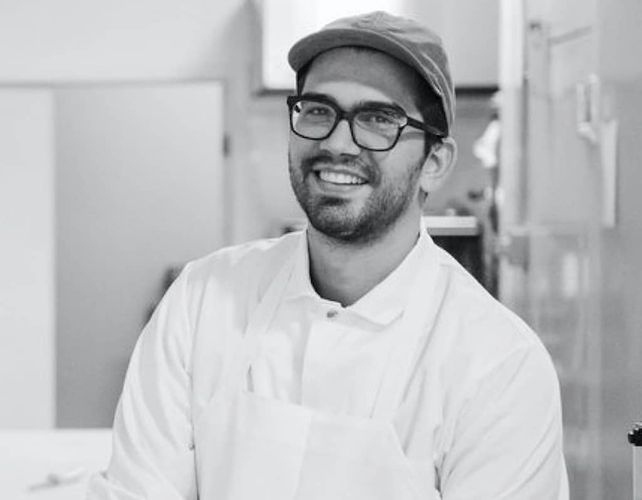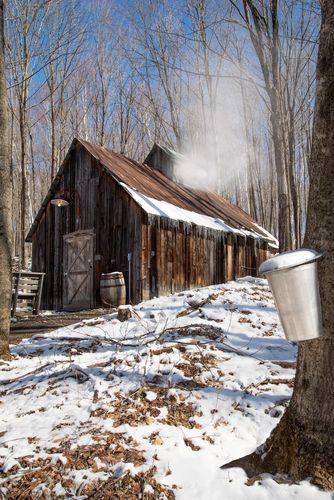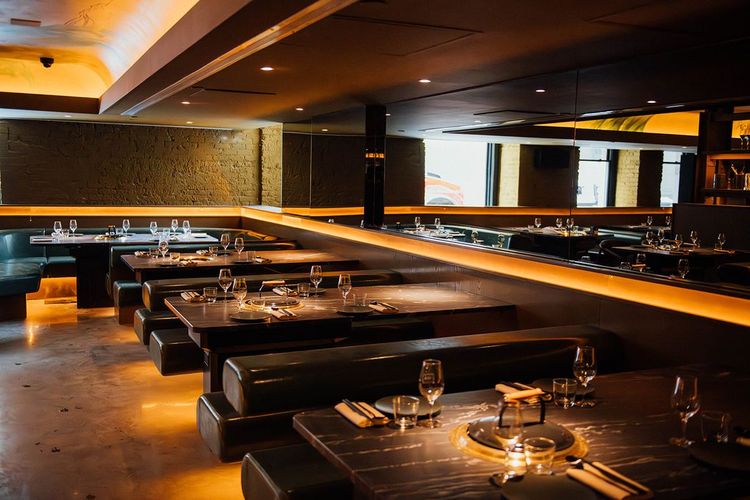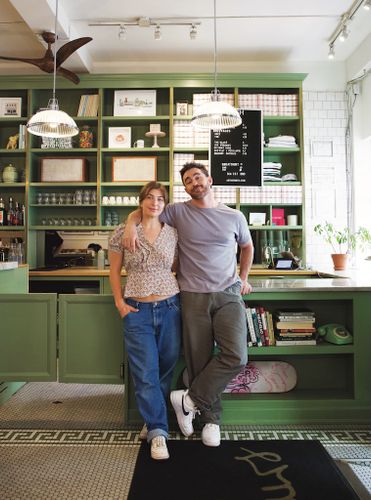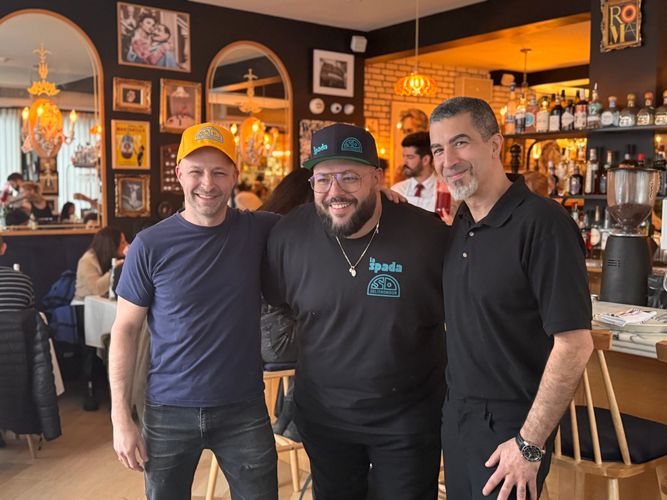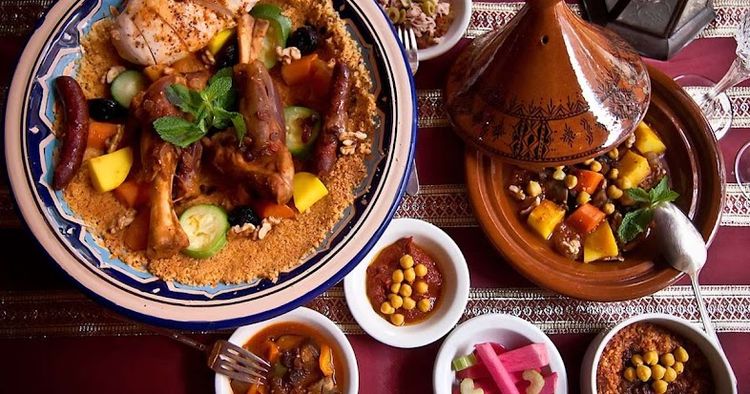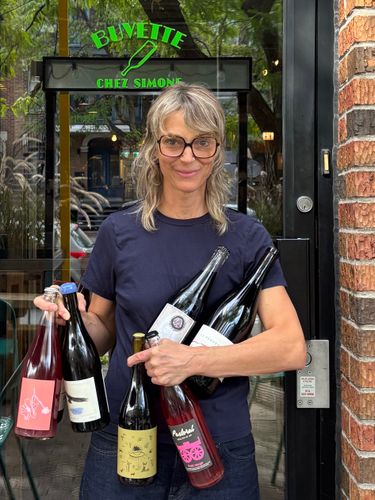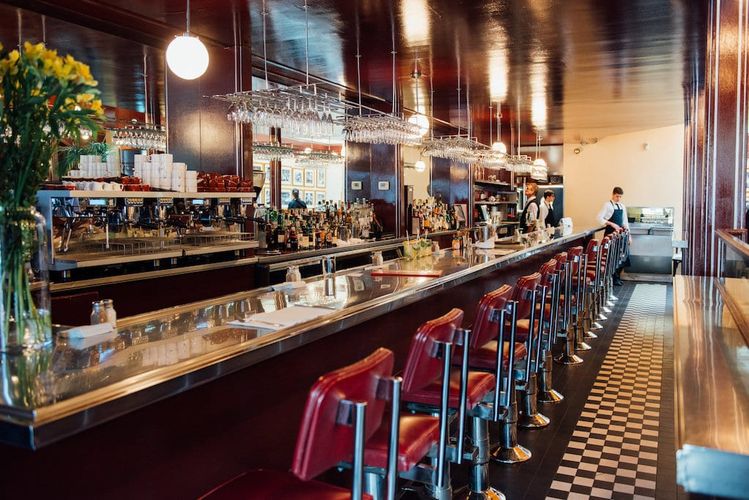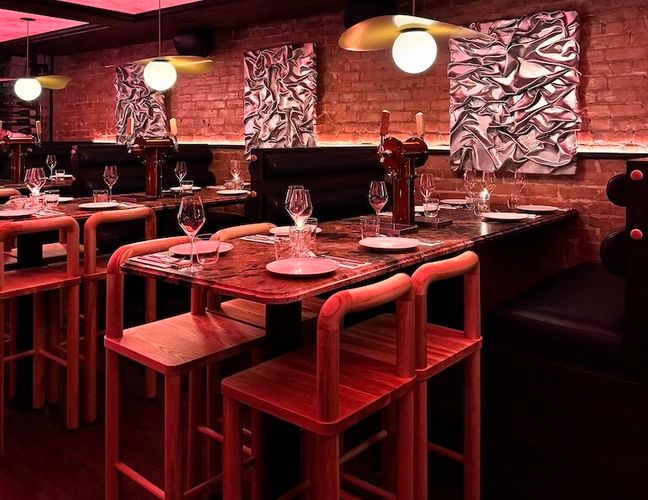
Jonathan Lapierre-Réhayem is 33 years old and is the director of commercial catering and executive chef at the ITHQ Restaurant. An enthusiastic lover of products from Quebec since his early days working in restaurants, he knows how to transmit his passion for our gastronomy to the hundreds of students at the ITHQ.
Jonathan began his career as a dishwasher at the Café Lézard on Masson at the age of 16. At the same time, he studied in pure sciences. However, he did not continue in that domain.
“I think my passion for cooking comes from my short attention span. I’ve always liked laboratories because there is a quick success. I love research and development, but the fact that you can make something quickly in the kitchen, combine flavours and all of a sudden discover a new combination, for me that’s incomparable. The endorphin that’s created in your brain, the buzz it gives you, the rush, the adrenaline… it’s like a drug, and I fell for it.” (laughs).
ITHQ and Asia
Jonathan left his studies in pure sciences and chose a technical program in food service management and catering at the ITHQ. While studying, he worked at the restaurant Cinquième Péché. During the summer, he left for the Magdalen Islands at the Auberge de la Petite Baie. He also had the chance to do one of the first international internships at the ITHQ when he left for China, in Shenyang. “It was towards the end of 2006, one of the school’s first international internships. There were a few problems with the visa, when the police came around, I had to hide in the freezer.” (laughs)
Jonathan finished his degree and then moved to Tokyo for six months. There, he worked in four restaurants and learned a lot. He particularly liked the new perspective on textures and tastes that this experience brought him. “For them, blue cheese is disgusting. On the other hand, fermentation is really good. At the time in Quebec, miso or kimchi was not very accessible. I was 18 years old and I had never tasted it.” In Japan, Jonathan worked from eight in the morning to midnight, six days a week. He learned rigour, hard work, and politeness.
France
At the age of 22, Jonathan returned to Montreal to pursue higher education in cooking at the ITHQ. While studying, he returned to work at the Cinquième Péché, followed by La Porte. Once again, Jonathan had the chance to do an internship abroad. He went to work for Édouard Loubet, a two-star Michelin restaurant. “Over there, it was very intense. There were 15 of us, and we ended up with five. The stress level was so high that people would leave in the middle of the night. It was militaristic. If you didn’t put the pepper shaker back exactly where you found it, you got a beating. I was an intern and ended up as a chef de partie for fish.”
There, Jonathan became familiar with Provençal cuisine and learned a lot about wild harvesting. “I also learned how to keep my mouth shut and, above all, how to handle stress.”
A few addresses from home
Jonathan returned to Montreal and worked at Brönté with Joe Mercuri for eight months. Impressed by the quality of the products and the execution of the recipes, Jonathan found the cuisine of the establishment very avant-garde and the research and development extraordinary. “However, there weren’t many customers, it was very long and a bit boring!” (laughs)
Jonathan is a friend of Hakim Rahal (Provisions 1268), who was the chef at Chez Victoire at the time. So he left to help him, as a sous-chef. He also stayed there for eight months.
He then left to work at the Montée de Lait, but the project also lasted eight months, before closing.
Le Laloux
It was in 2011 that Jonathan got his first chef position, at the age of 25. “My great interest in Quebec’s gastronomic culture began at that moment.” Jonathan discovered a host of products from here and became very excited to discover more about Quebecois food. He ordered whole cows and did his own schooling at the restaurant. “At the time, no one on the team had learned to butcher a whole cow. We had a map of the different parts of the cow and tried to find them. At first it produced a lot of ground beef. (laughs) And then, less and less.”
Jonathan loves the discovery side and the adrenaline of mixing flavours. He also loves his team. “The beauty of this address was in the whole: the customers, the room, the sommelier, the kitchen… The whole team tasted the menu together, thought together about how to improve each part and worked together to offer something good. It was a great team.”
His favourite thing? “Having the big picture of the whole team. Not just having your own thing. Everything is done to make sure the client loves their experience from start to finish.” Again, Jonathan loves research and development. “Developing recipes, writing them, standardizing them; I loved it!” He’s learning how to make charcuterie, pickles, cheeses. And he is also learning to work with Quebec products. The restaurant is a huge success: it was one of our essential Montreal restaurants.
Jonathan’s story at Laloux did not end well, however. A new owner joined the team and, for reasons related to costs and other issues, fired two very important people on duty — the sommelier and the maître d’hôtel. On the day of the dismissal, these two people didn’t show up and the entire service staff resigned. The restaurant had to hire new servers at the last minute. “That night was a disaster. The regulars left crying. The next day, I resigned, and the entire kitchen staff followed me.”
Fresh start
Following this unpleasant experience, Jonathan wandered for a while. During the summer, he worked for friends; a little at Hvor, a little at Candide, a little at Hoogan et Beaufort.
“In 2016, shortly after all of that, my son got very sick. I was roaming from work to the hospital nonstop. Managing my stress was very difficult. I craved something more stable and secure. To have a better quality of life and enjoy my family.” Jonathan then received an offer from the ITHQ to develop training for St-Hubert and the SAQ.
After some time, Paul Caccia, director of the ITHQ’s main communications and business development department, offered Jonathan the mandate to “restructure the machine. Jonathan was hired to recruit the right people and rethink the catering at the school.
Things were going even better than expected and he finally decided to stay. In January 2017, he earned the title of Director of Commercial Catering and Executive Chef at the ITHQ Restaurant. Jonathan became the first Quebecois chef at ITHQ. He is young, modern, a graduate of the institution, and a strong advocate for Quebec products. “I had very specific expertise and a network of very good suppliers. I was in the right place at the right time for this job.”
From the moment he arrived, a strong emphasis was placed on products from Quebec.
In fact, Jonathan replaced all non-Quebec products with local products. He encouraged the ITHQ students to learn about cooking with these products. “Twenty years ago, Normand Laprise, chef and co-owner of Toqué! did an extraordinary job. Now, I have the chance to train the next generation at the source! It’s one of the greatest challenges to train them and make them aware of our Quebecois identity.”
For a new generation that knows its Quebecois gastronomy
Jonathan organizes the menus with several teachers who come to the restaurant in rotation. They discuss recipes and menus. “I like the sharing of ideas, the buzz, the conceptualization of recipes. The more chefs we have, the more brains we have!”
Together, they replace vanilla with sweet clover, olive oil with sunflower oil, he promotes the use of camelina, small fruits, sea buckthorn, camerise, cranberries, cider vinegar, sumac, seaweed, wild mushrooms, etc. “The evolution of the kitchen, the influence of decisions, the sharing of values, the outreach of values, the advancement of this project, that’s my favourite thing! It’s important to understand what’s being done in and around Montreal; what’s real and has a great culture.” Even the wine list now features wines from Quebec with wines from Les Pervenches, Négondos, and Nival.
Each year, nearly a hundred students pass through the restaurant, either in service or in the kitchen. “The young people are immersed in this cuisine. It’s the last session of classes before the job market, so I think it’s a great model. I like to influence young people and teach them about Quebec’s culinary identity.”
Written by Élise Tastet
Photography by ITHQ

